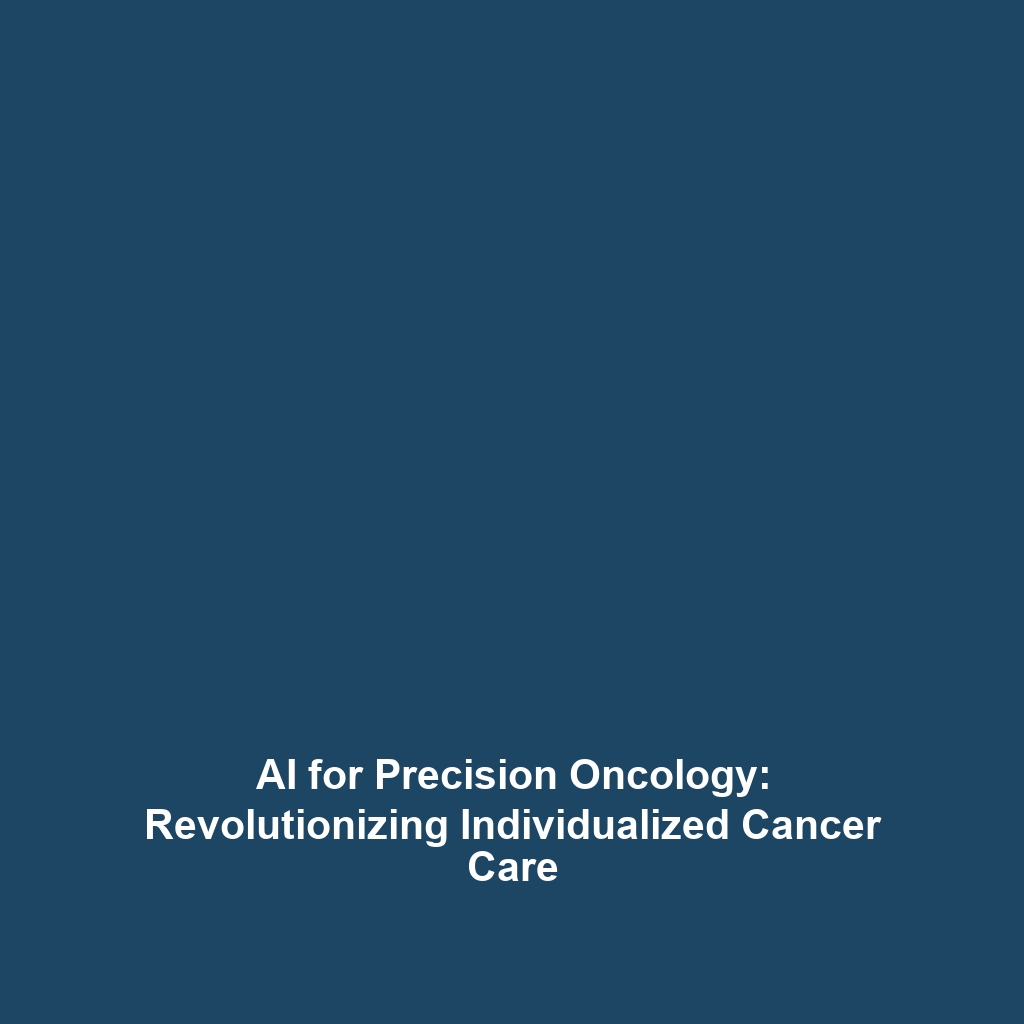AI for Drug Safety: Enhancing Pharmacovigilance and Monitoring Side Effects
Introduction
The integration of artificial intelligence (AI) in healthcare is revolutionizing various aspects of the industry, particularly in the realm of drug safety. AI technologies are significantly enhancing pharmacovigilance, the science centered on the detection, assessment, understanding, and prevention of adverse effects or any other drug-related problems. This article delves into the importance of AI for drug safety, emphasizing its critical role in monitoring side effects and ensuring patient safety, thereby enhancing overall public health.
Key Concepts
The application of AI for drug safety encompasses several major concepts:
Pharmacovigilance
Pharmacovigilance is essential for detecting and understanding side effects and ensuring that the benefits of drugs outweigh their risks. AI enhances this process by analyzing vast amounts of data from clinical trials, healthcare records, and social media to identify patterns that indicate potential safety signals.
Machine Learning and Data Mining
Machine learning algorithms, a subset of AI, are utilized to sift through enormous datasets, improving the capability to predict adverse drug reactions. These algorithms can automate the detection of signals within accumulated medical data, thereby enhancing the monitoring efficacy.
Natural Language Processing (NLP)
NLP technologies allow for the analysis of unstructured data from sources like electronic health records and patient reviews. By interpreting patient narratives, AI can uncover unreported side effects and improve the transparency of drug safety information.
Applications and Real-World Uses
The applications of AI for drug safety are increasingly evident within healthcare. Here are some notable examples:
- Signal Detection: Companies like IBM Watson Health employ AI to monitor drug safety data, improving the speed of signal detection concerning adverse drug reactions.
- Risk Assessment: A study by researchers at Stanford University demonstrated that AI can better predict drug response variability among patients, enabling personalized medicine approaches.
- Real-Time Monitoring: Companies are leveraging AI algorithms to analyze data streams for immediate detection of side effects, as seen with apps that track medication side effects in real time.
Current Challenges
Despite the promise AI holds for drug safety, several challenges remain:
- Data Privacy: Protecting patient data while leveraging it for AI analysis is a crucial concern.
- Integration with Existing Systems: Many healthcare facilities face difficulties in incorporating new AI solutions with legacy systems.
- Algorithm Transparency: Understanding how AI models arrive at decisions can be complex, raising concerns about accountability in drug safety.
Future Research and Innovations
Looking forward, innovations in AI for drug safety are poised to enhance its efficacy:
- Advanced Deep Learning: Future algorithms will likely employ deep learning for more accurate predictions of drug interactions and side effects.
- Blockchain Technology: Integrating blockchain with AI could improve the transparency and security of pharmacovigilance data.
- Patient-Centric Models: Future research may emphasize personalized AI-driven approaches that adapt to individual patient experiences and responses.
Conclusion
AI for drug safety is a vital component of enhancing pharmacovigilance and effectively monitoring side effects in healthcare. As the technology advances, it promises to deliver even more profound insights into drug safety, fostering a safer healthcare environment for patients. Stakeholders in the healthcare industry are encouraged to invest in AI technologies, driving further innovation. For more insights into related topics, consider exploring our articles on AI in healthcare technologies and latest research in pharmacovigilance.
